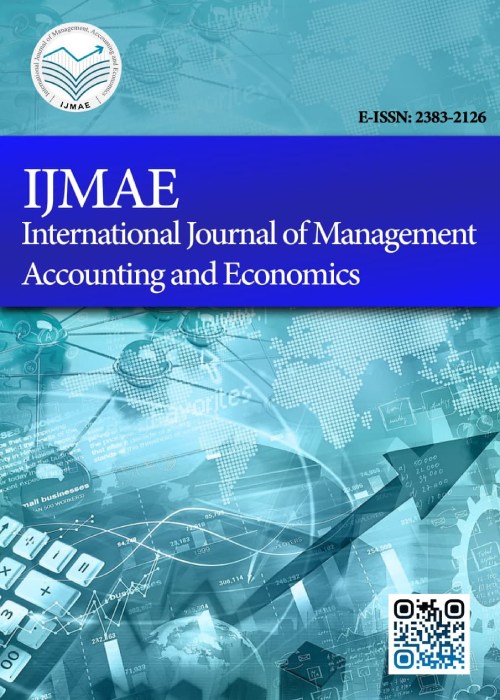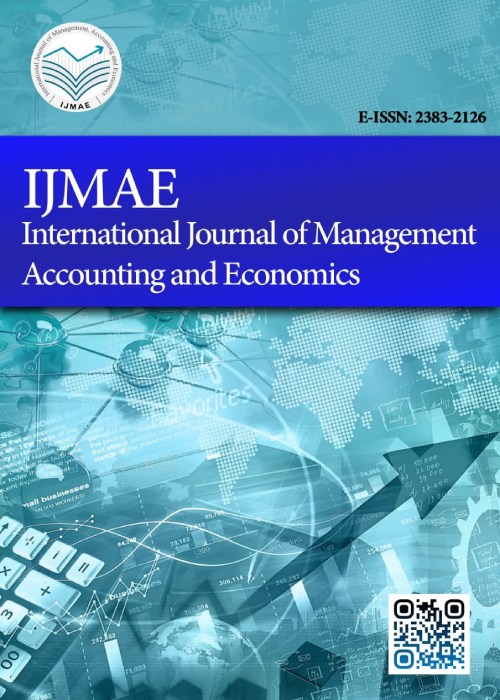فهرست مطالب

International Journal of Management, Accounting and Economics
Volume:10 Issue: 7, Jul 2023
- تاریخ انتشار: 1402/05/28
- تعداد عناوین: 4
-
Pages 447-467Public universities have recognized the power they hold as influential entities within communities, and with this power comes the responsibility to select suppliers who share on their vision. By prioritizing sustainability in their procurement strategies, universities can lessen their environmental impact and serve as examples for other organizations. Embracing sustainability in supplier selection requires the acknowledgement of the interrelatedness between economic, social, and environmental factors. It mandates organizations to consider long-term consequences of traditional purchasing considerations, such as cost and quality, rather than short-term gains. However, the absence of clear guidelines and policies on sustainable supplier selection results in inefficiencies in decision-making within most universities. Consequently, their ability to prioritize partnerships with eco-friendly, socially responsible, and economically viable suppliers is hindered. The purpose of this study was to analyze the impact of sustainable supplier selection (SSS) on the procurement performance of public universities. A cross-sectional research design was employed, utilizing a population of 40 employees from the procurement department, selected from ten chartered public universities in Kenya. The findings revealed that public universities have embraced sustainable supplier selection, although to varying degrees. Moreover, the coefficient of determination was 0.472 implying that the sustainable supplier selection criteria used by the universities accounted for 47.2% of their procurement performance. The study constitutes a model utility for fostering sustainable procurement practices within the confines of public universities. It recommends the development of robust approaches to evaluating supplier environmental and social performance that could significantly heighten business sustainability levels.Keywords: Environmental purchasing, Supplier selection, Sustainability
-
Pages 468-479Conflict of interests between shareholders and managers and other problems have led to the creation of corporate governance mechanisms. But, firms’ performances and the effect of corporate governance mechanisms on firm performance are still of interest to researchers. The objective of this study is to investigate the effect of internal audit formation history and audit committee formation history on the company's performance and also to investigate the moderating effect of firm age on these relationships. The population in this research includes all the companies listed on the Tehran Stock Exchange during 2018 to 2022, and the sample includes 120 companies. Research data were analyzed through multivariate regression model and by Stata software. The results show that the internal audit formation history has a positive and significant effect on the company's performance and also the audit committee formation history has a positive and significant effect on company’s performance. The results also show that firm age is a positive and significant effect on company’s performance. Moreover, the results show that firm age has no significant effect on the relationship between the internal audit formation history and the company's performance, but firm age has a positive effect on the relationship between the audit committee formation history and the company's performance.Keywords: Audit Committee, Company’s Performance, firm age, Formation History, Internal Audit
-
Pages 480-494This study was designed to investigate the influence of internal marketing on the sales force performance of beverage manufacturing firms in Nigeria. The underpinnings of internal marketing were internal communication and internal training. The population of the study included the salespersons that were involved in the sales of beverage-manufactured drinks, both alcoholic and non-alcoholic, in Nigeria. A sample size of 152 was investigated. A structured questionnaire served as the primary instrument for data collection. The structured questionnaire was administered to every member of the population, and 144 copies of the instrument were filled out and returned in useable form. Data collected were analysed using percentage analysis, and hypotheses formulated were tested using simple linear regression analysis. Findings from the study revealed that there is a significant relationship between the internal marketing variables (i.e., internal communication and internal training) and sales force performance. Based on the empirical findings, the author concluded that internal marketing strategies influence the sales force performance of beverage manufacturing firms in Nigeria. The researchers recommended that management show more interest in communication and training to improve and enhance sales through the performance of the sales team.Keywords: Internal Communication, Internal Marketing, internal training, methods of sales force training, Sales force performance
-
Pages 495-512Certainly, the use of the achievement of budgetary objectives as a criterion for evaluating individual performance of managers (budgetary evaluation) is considered a controversial subject. It has been the subject of some research studies to understand its diversity and its impact on firm's performance. In this context, the aim of this paper is twofold. First, it tests the impact of organizational decentralization on budgetary evaluation practices. Second, it investigates the contribution of budgetary evaluation in firms' global performance improvement according to organizational decentralization. Data were collected from 62 Moroccan firms, operating in different industries, via a questionnaire survey. Based on descriptive statistics and some statistical tests (linear regressions), the study results show that organizational decentralization has a positive significant impact on budgetary evaluation, implying that “strict” budgetary evaluation especially based on the achievement of budgetary targets in individual performance evaluation is adopted more by decentralized firms. In addition, the firms’ global performance is significantly and positively impacted by the budgetary evaluation in decentralized companies. This relationship is not significant in centralized firms. Among the implications of this study, we can highlight that its results are very useful for companies’ managers. The use of a “strict” budgetary evaluation is more suitable for decentralized firms. While centralized companies are indifferent between adopting “strict” and “flexible” budgetary valuation.Keywords: Budgetary evaluation, Organizational decentralization, Firm’s performance, Moroccan firms


